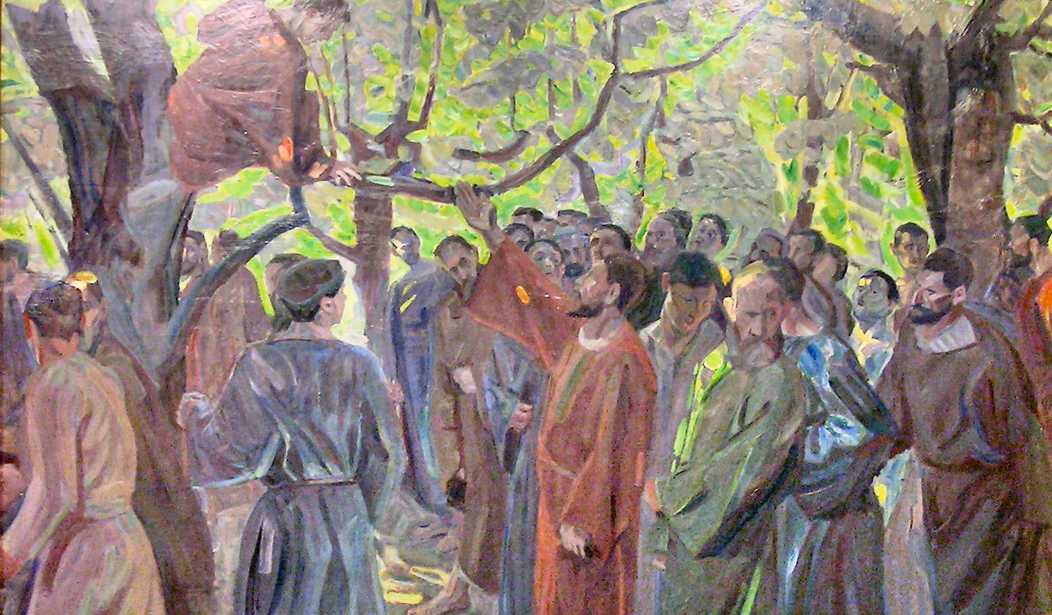We wrapped up a series at church last week called “Doubt and Deconstruction.” It was a bold series that dove deep into why people struggle with their faith and why some people fall away from the church or resist it completely.
The first two weeks of the series had an apologetics focus — and I think y’all already know how much I love apologetics — while the second half of the series explored the problems that some people have with the church. The whole series was challenging, convicting, and encouraging, often simultaneously.
The final sermon in the series tackled the notion that many people outside the church (and some inside the church) view Christians as judgmental. The surface-level response to the question of “Why are Christians so judgmental?” is that people often think of Christians as negative, always railing against something.
Kurt Petersheim, our campus pastor who delivered the sermon, put it this way: “We should be known for what we’re for, not what we’re against.” And what we should be for is bringing people to Christ.
Everybody knows John 3:16, “For God so loved the world, that he gave his only Son, that whoever believes in him should not perish but have eternal life.” But we tend to forget what comes after it: “For God did not send his Son into the world to condemn the world, but in order that the world might be saved through him.”
To illustrate the point, Kurt related the account of Zacchaeus and his encounter with Jesus:
[Jesus] entered Jericho and was passing through. And behold, there was a man named Zacchaeus. He was a chief tax collector and was rich. And he was seeking to see who Jesus was, but on account of the crowd he could not, because he was small in stature. So he ran on ahead and climbed up into a sycamore tree to see him, for he was about to pass that way. And when Jesus came to the place, he looked up and said to him, “Zacchaeus, hurry and come down, for I must stay at your house today.” So he hurried and came down and received him joyfully. And when they saw it, they all grumbled, “He has gone in to be the guest of a man who is a sinner.” And Zacchaeus stood and said to the Lord, “Behold, Lord, the half of my goods I give to the poor. And if I have defrauded anyone of anything, I restore it fourfold.” And Jesus said to him, “Today salvation has come to this house, since he also is a son of Abraham. For the Son of Man came to seek and to save the lost.”
Notice that Jesus didn’t tell Zacchaeus that he had to get every aspect of his life right before Zacchaeus could be in His presence. Instead, the ones who condemned the sinner were the faithful ones who were secure in their religion — or, as Kurt called them, “the church kids.” Zacchaeus’ change of heart came after his encounter with Jesus and because of the love that Jesus showed him. As Kurt put it, “Jesus loved people where they were so that maybe they wouldn’t stay where they were.”
Related: Sunday Thoughts: Lessons From the Woman at the Well
I recently read Becket Cook’s book about his transformation from a gay man who didn’t want anything to do with Jesus to a committed Christian. He gave his life and heart to Jesus before he changed his lifestyle. That’s how all of us are when we come to Christ; we remedy our separation from Jesus before we can work on other sins.
“Sometimes we expect people to live like Christians before they become Christians,” Kurt reminded the congregation. He likened that expectation to teaching a caterpillar to fly — there’s a transformation that has to happen first.
One of the canards that people tend to lob at Christians is that we see everything as a sin. Please don’t get me wrong: there’s plenty of sin that we need to be concerned with, especially in our own lives, but when it comes to leading people to faith in Jesus, as Kurt put it, the sin we need to care about first that they don’t believe in Jesus.
In 2013, Harrison Okene was a cook on a ship that capsized off the coast of Nigeria. He survived 60 hours in an air bubble on the sunken ship before rescuers discovered him. When the rescue diver found him, he didn’t ask Harrison a bunch of questions to determine whether he was worthy of being saved from the wreckage; instead, he saved Harrison. It’s been said that Harrison was literally at the last hour in which he would have precious oxygen to breathe in that sunken ship.
Rescue is always right on time. As the Apostle Paul told the Roman church:
For while we were still weak, at the right time Christ died for the ungodly. For one will scarcely die for a righteous person—though perhaps for a good person one would dare even to die — but God shows his love for us in that while we were still sinners, Christ died for us.
“Jesus loved people where they were so that maybe they wouldn’t stay where they were,” Kurt preached. We need to be concerned about sin in the world, starting with our own sin, but the first sin that people need to remedy is not having a relationship with Jesus.
We’re on a rescue mission to help people know Him — may we be like the man who rescued Harrison Okene instead of being like the religious people who clucked their tongues at Jesus accepting Zacchaeus into the family of believers.










Join the conversation as a VIP Member